An extended warranty is a service contract that covers repair or replacement costs after a manufacturer's warranty expires, often for a set fee. Self-insuring, on the other hand, involves saving money in a dedicated fund to pay for repairs when needed. The choice depends on your risk tolerance, financial habits, and the likelihood of needing repairs.
Your phone buzzes. Again. It's another call about an extended warranty. You roll your eyes, ignore the call, and mutter something about scams. Sound familiar? You're not alone. Extended warranty sales calls have gained a reputation as some of the most annoying interruptions, leaving many people wary about even considering these services. But are extended warranties actually a scam—or could they be the financial safety net you didn’t know you needed?
On the other hand, there’s the “self-insuring” camp, where you set aside funds to cover repairs and hope for the best. Which approach is right for you? Let’s dive into the pros, cons, and surprising facts about extended warranties and self-insuring. Along the way, we’ll bust myths, highlight scams to avoid, and provide tips for making an informed decision.
What Is an Extended Warranty?
An extended warranty is essentially a service contract that covers repair or replacement costs for a product after the manufacturer’s warranty expires. It can apply to everything from cars to appliances to electronics. While they offer peace of mind, they come with a cost—and it’s essential to weigh that against the likelihood of needing repairs.
What Is Self-Insuring?
Self-insuring means creating your own financial safety net for unexpected repairs. Instead of paying for a warranty, you set aside money in a savings account or a “sinking fund” specifically for future repair expenses. While this approach avoids upfront costs, it requires discipline and careful budgeting.
Extended Warranty vs. Self-Insuring: Pros and Cons
Pros of Extended Warranties
| Advantage | Details |
|---|---|
| Peace of Mind | No stress about unexpected repair costs; repairs are covered as per the warranty agreement. |
| Comprehensive Coverage | Extended warranties often cover items beyond a manufacturer's warranty, like electronics. |
| Convenience | Easy claims process; the warranty provider manages repairs and payments. |
| Credit Card Benefits | Some credit cards extend warranties automatically when purchases are made using the card. |
Cons of Extended Warranties
| Disadvantage | Details |
|---|---|
| Cost | Upfront payment can be expensive, sometimes exceeding the value of future repairs. |
| Scams | Unsolicited calls and offers make many skeptical of the legitimacy of warranties. |
| Exclusions and Fine Print | Some repairs or damages may not be covered, and deductibles may apply. |
Pros of Self-Insuring
| Advantage | Details |
|---|---|
| Full Control | You manage and keep your money until repairs are necessary. |
| No Middleman | No dealing with warranty providers, claims, or exclusions. |
| Flexibility | Funds can be used for any repair, regardless of warranty terms. |
Cons of Self-Insuring
| Disadvantage | Details |
|---|---|
| Discipline Required | Consistent saving is essential; funds must remain untouched. |
| Risk of Insufficient Savings | Major repairs could deplete your savings if not adequately funded. |
| No Perks | Self-insuring doesn’t include extras like roadside assistance or rental car coverage. |
The Annoyance of Warranty Calls: A Word of Caution
Scams have tainted the reputation of extended warranties. While legitimate companies like Noble Quote provide valuable protection, rogue telemarketers have exploited this industry. These calls often involve high-pressure tactics and vague offers. Here’s how to avoid falling victim:
Don’t Engage
If you didn’t reach out to the company, don’t provide any personal information. Scammers rely on people’s confusion and frustration.
Research Before You Buy
Look up reviews and ratings for companies offering warranties. Stick to those with verified credentials.
Only Buy When You Initiate Contact
Companies like Noble Quote only call back when you request a quote, ensuring you’re in control.
Self-Insuring vs. Credit Card Coverage
Many credit cards, like the Chase Sapphire Preferred or American Express Gold, offer extended warranty protection as a perk. This can be a middle-ground solution if you’re not ready to purchase a dedicated warranty. However, these benefits often have limits, such as a maximum claim amount or exclusions for certain products. Combining credit card benefits with self-insured savings can be a smart strategy.
Tips for Deciding Between Extended Warranty and Self-Insuring
Evaluate Repair Risks
High-value items prone to breakdowns (like cars or refrigerators) are better candidates for extended warranties.
Check Your Credit Card Benefits
If your credit card already provides warranty extensions, you may not need to purchase additional coverage.
Build an Emergency Fund
Whether you choose self-insuring or an extended warranty, an emergency fund provides financial security for unexpected repairs.
Research Companies
Look for trusted providers like Noble Quote and avoid offers from unsolicited calls or emails.
Your Ultimate Guide to Extended Warranties and Self-Insuring: Answers to Common Questions
What is the difference between an extended warranty and self-insuring?
Is it cheaper to self-insure than to buy an extended warranty?
Self-insuring can be cheaper if you rarely need repairs and can consistently save money. However, for high-cost repairs (e.g., car engines or major appliances), an extended warranty might save you money in the long run. Calculate the potential costs and savings to decide what’s best for you.
Are extended warranties worth it for cars?
Extended warranties for cars can be worth it if your vehicle has a history of reliability issues or expensive repair needs. They often cover costly components like engines and transmissions. Research your car's reliability and repair costs before deciding.
Can I combine self-insuring with credit card benefits?
Yes! Many credit cards, such as the Chase Sapphire Preferred, offer extended warranty benefits when you use them for purchases. You can self-insure for repairs that exceed credit card coverage, creating a dual safety net.
How do I avoid extended warranty scams?
To avoid scams, only purchase warranties from reputable companies that you contact directly. Be cautious of unsolicited calls or emails offering vague warranty terms. Trusted providers like Noble Quote ensure transparency and reliability.
What should I look for in an extended warranty?
When choosing an extended warranty, consider:
- Coverage: What repairs are included?
- Exclusions: Are there any specific items not covered?
- Cost: Is the price reasonable compared to potential repair expenses?
- Reputation: Does the provider have good reviews and customer service?
How much should I save monthly to self-insure?
The amount depends on the items you’re covering. For cars, saving $50-$100 per month in a high-yield savings account is a good starting point. For appliances or electronics, base your savings on the average repair costs of those items.
Does my credit card cover extended warranties?
Many credit cards offer purchase protection and extend the manufacturer’s warranty for free. Check your card’s benefits guide to see if extended warranties are included and what limits apply.
What products should I get an extended warranty for?
Consider extended warranties for:
- Cars: Particularly high-mileage or luxury vehicles.
- Appliances: Items like refrigerators or washing machines with high repair costs.
- Electronics: Devices like laptops or TVs that are expensive to repair or replace.
Where can I learn more about extended warranties and self-insuring?
Visit the NobleQuote Learning Center for expert advice, comparisons, and detailed guides on choosing the right protection for your needs.
Suggestions for you
Read MoreLet’s work together
Every week we showcase three charitable organizations that our donations are sent to. Our clients are able to choose which of these three will receive their gift when they add coverage to their vehicle...

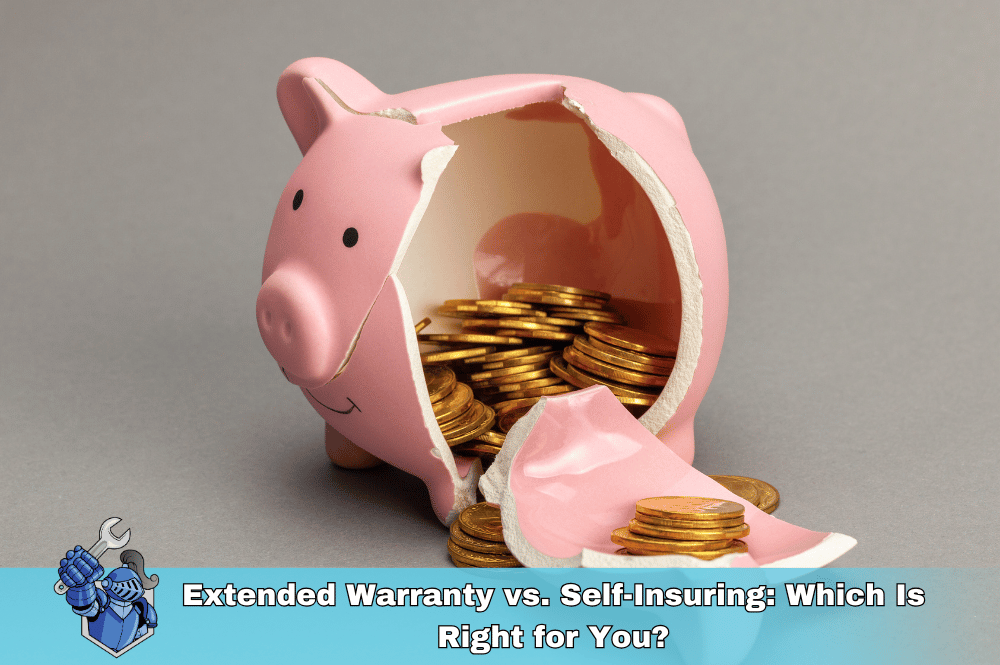
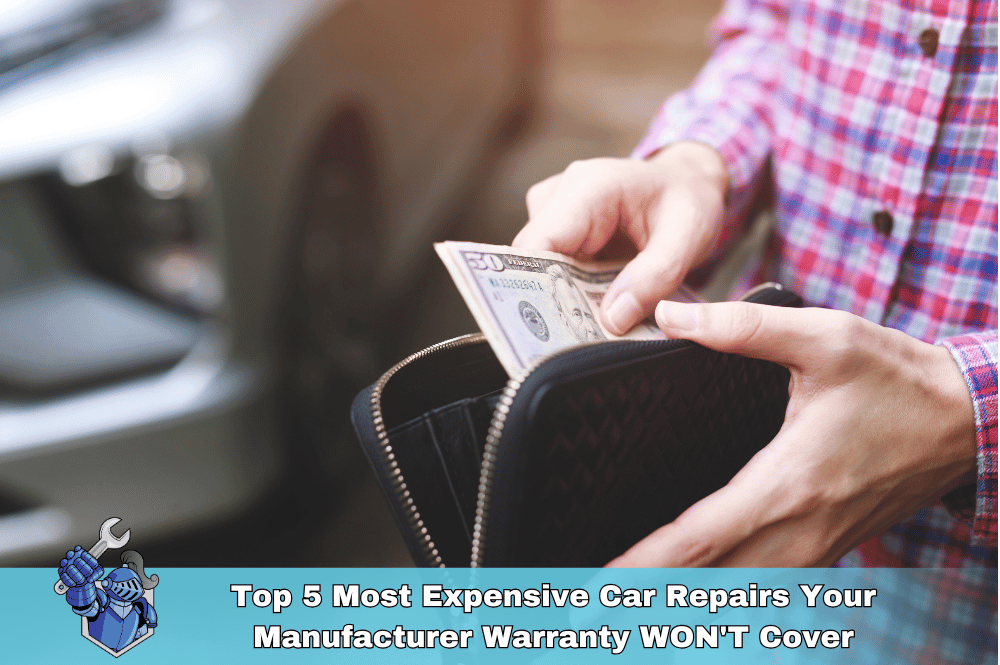 Top 5 Most Expensive Car Repairs Your Manufacturer Warranty WON'T Cover
Top 5 Most Expensive Car Repairs Your Manufacturer Warranty WON'T Cover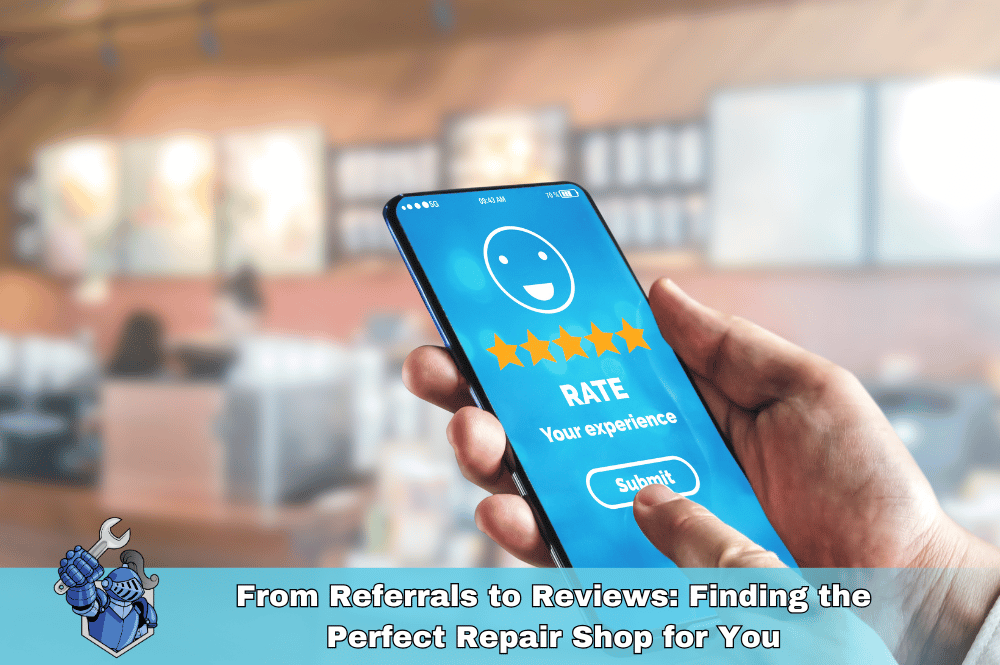 From Referrals to Reviews: Finding the Perfect Repair Shop for You
From Referrals to Reviews: Finding the Perfect Repair Shop for You Speaking Car: How to Clearly Communicate with Your Mechanic
Speaking Car: How to Clearly Communicate with Your Mechanic Selling Your Soul for an Extended Car Warranty (And Why They Keep Calling)
Selling Your Soul for an Extended Car Warranty (And Why They Keep Calling)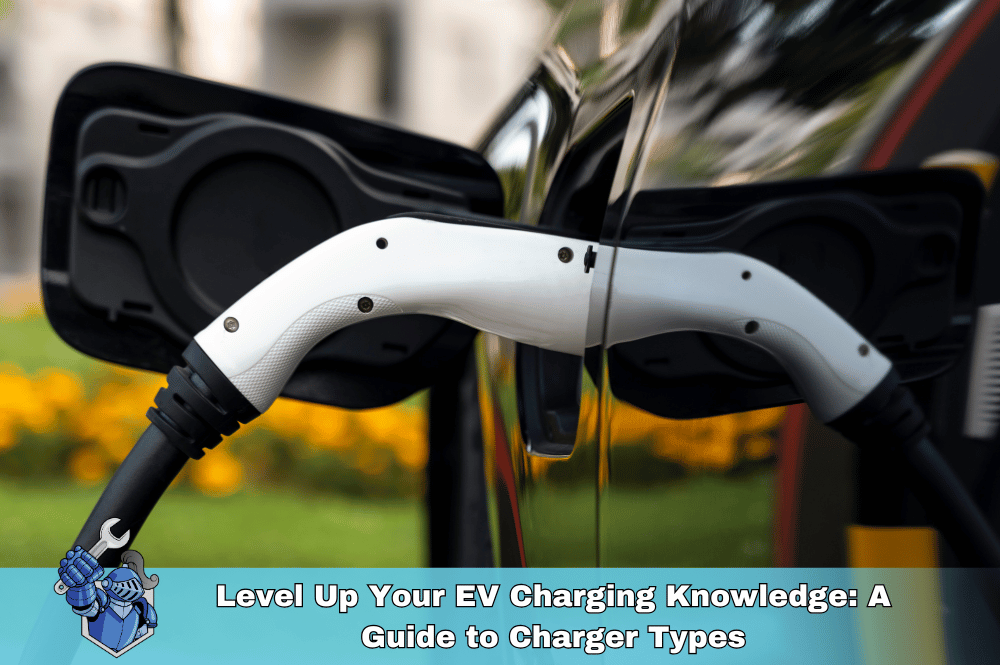 Level Up Your EV Charging Knowledge: A Guide to Charger Types
Level Up Your EV Charging Knowledge: A Guide to Charger Types Why Is My Car Heater Blowing Cold Air?
Why Is My Car Heater Blowing Cold Air?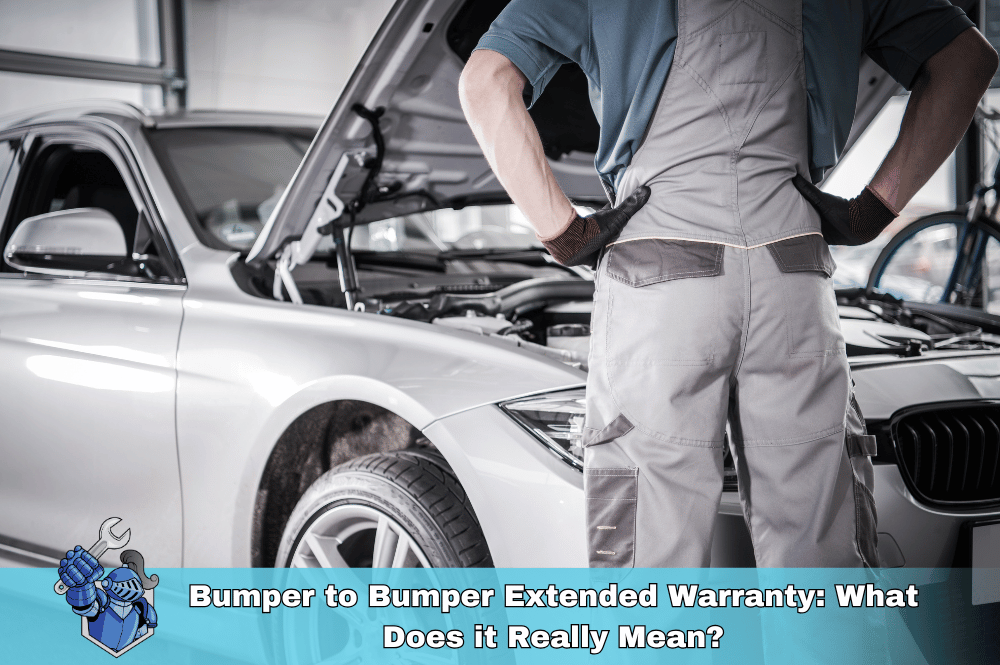 Bumper to Bumper Extended Warranty: What Does it Really Mean?
Bumper to Bumper Extended Warranty: What Does it Really Mean?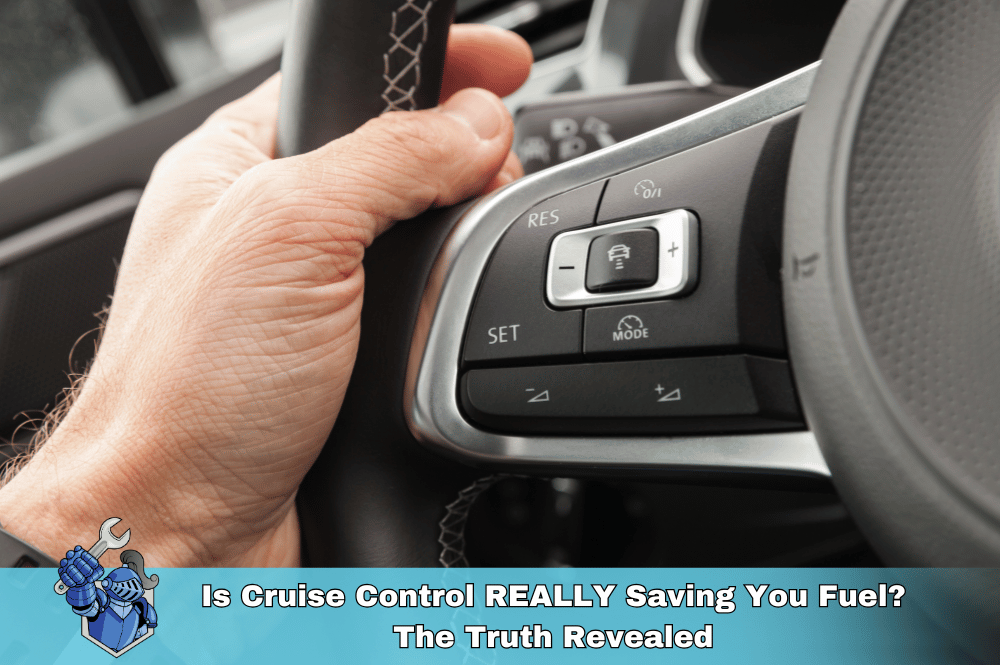 Is Cruise Control REALLY Saving You Fuel? The Truth Revealed
Is Cruise Control REALLY Saving You Fuel? The Truth Revealed Boost Your EV's Range: Tips and Tricks for Maximum Mileage
Boost Your EV's Range: Tips and Tricks for Maximum Mileage What to Do When the Dealership Makes Warranty Cancellation a Hassle
What to Do When the Dealership Makes Warranty Cancellation a Hassle Why Can’t I Include My Warranty in My Car Financing? Answers to Your Top Questions
Why Can’t I Include My Warranty in My Car Financing? Answers to Your Top Questions Car Safety Technology: How Advanced Driver-Assistance Systems (ADAS) Are Changing the Game (and Your Insurance Rates)
Car Safety Technology: How Advanced Driver-Assistance Systems (ADAS) Are Changing the Game (and Your Insurance Rates)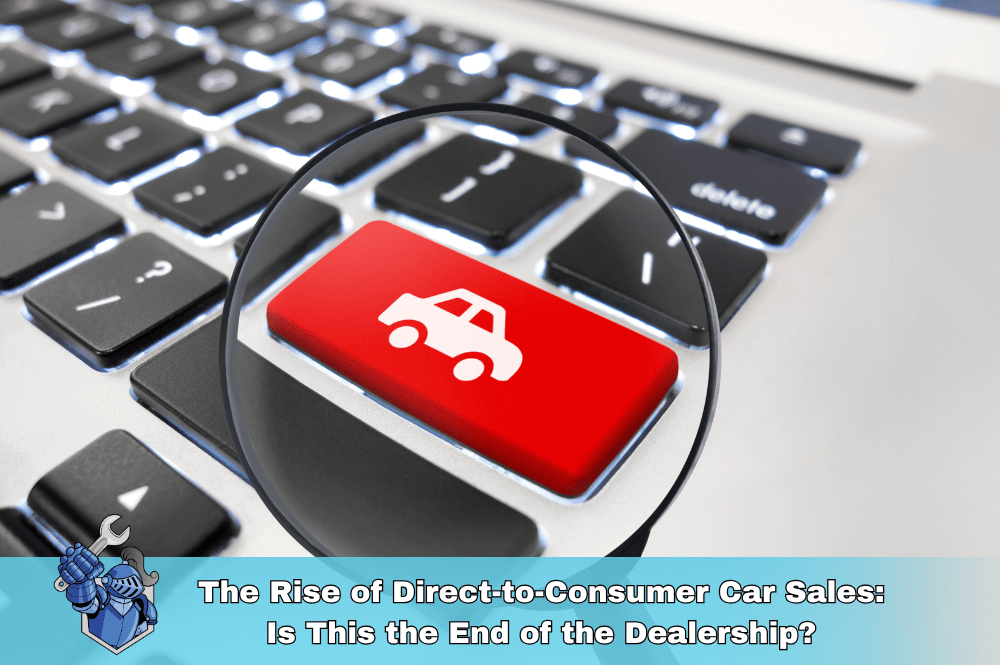 Skip the Dealership: The Rise of Online Car Buying
Skip the Dealership: The Rise of Online Car Buying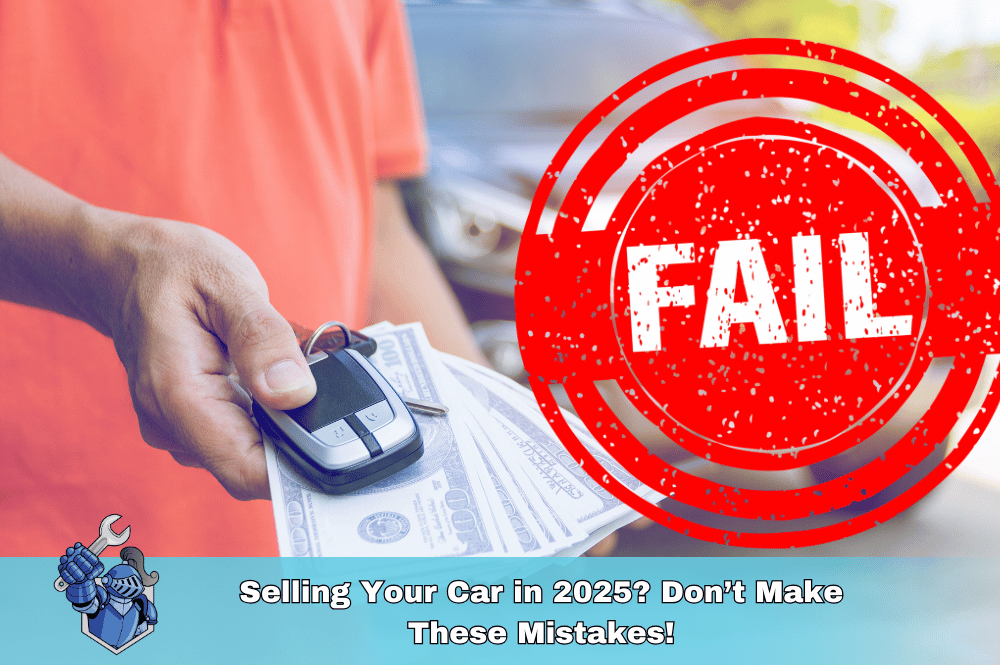 Selling Your Car in 2025? Don’t Make These Mistakes!
Selling Your Car in 2025? Don’t Make These Mistakes!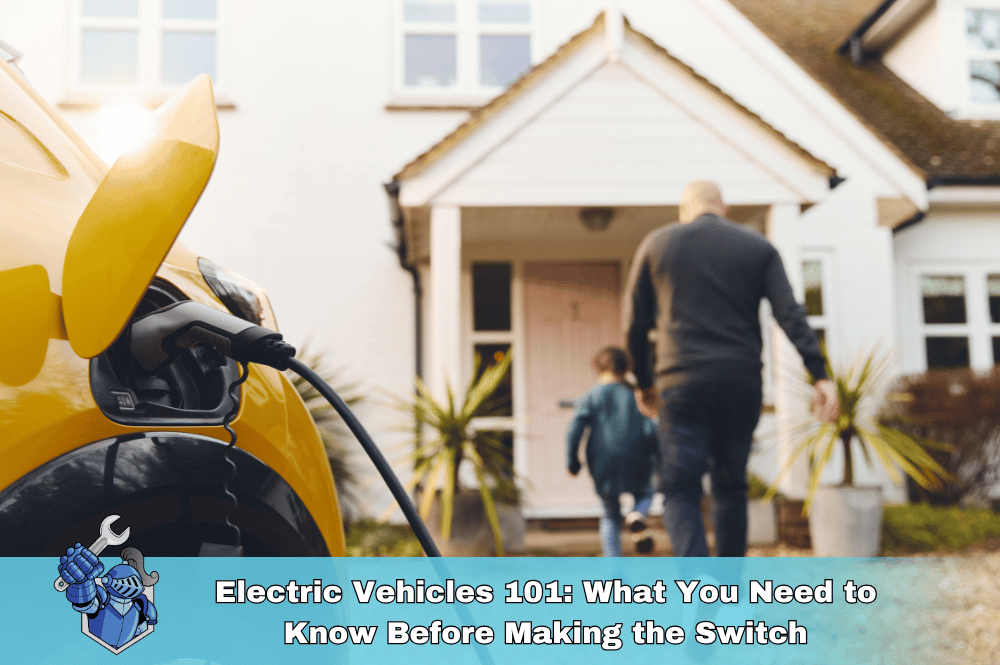 Electric Vehicles 101: What You Need to Know Before Making the Switch
Electric Vehicles 101: What You Need to Know Before Making the Switch Car Scratches Driving You Crazy? 10 Steps to Fix Them Yourself
Car Scratches Driving You Crazy? 10 Steps to Fix Them Yourself Why Your Headlights Are Turning Yellow (And How to Prevent It)
Why Your Headlights Are Turning Yellow (And How to Prevent It) That Annoying Hemi Tick: Why It Happens & How to Stop It
That Annoying Hemi Tick: Why It Happens & How to Stop It 'Tis the Season to Be Jolly... and Protected: Why an Extended Warranty is the Gift That Keeps on Giving
'Tis the Season to Be Jolly... and Protected: Why an Extended Warranty is the Gift That Keeps on Giving The Car Repair Lottery: Are You Feeling Lucky?
The Car Repair Lottery: Are You Feeling Lucky? Extended Warranty Secrets: Unlocking Surprising Perks You Didn’t Know Existed!
Extended Warranty Secrets: Unlocking Surprising Perks You Didn’t Know Existed! Car Trouble? Your Insurance Might NOT Cover This!
Car Trouble? Your Insurance Might NOT Cover This! Is Your Car a Ticking Time Bomb? The Unexpected Costs of Car Ownership
Is Your Car a Ticking Time Bomb? The Unexpected Costs of Car Ownership Off-Roading vs. Overlanding: What’s the Difference?
Off-Roading vs. Overlanding: What’s the Difference?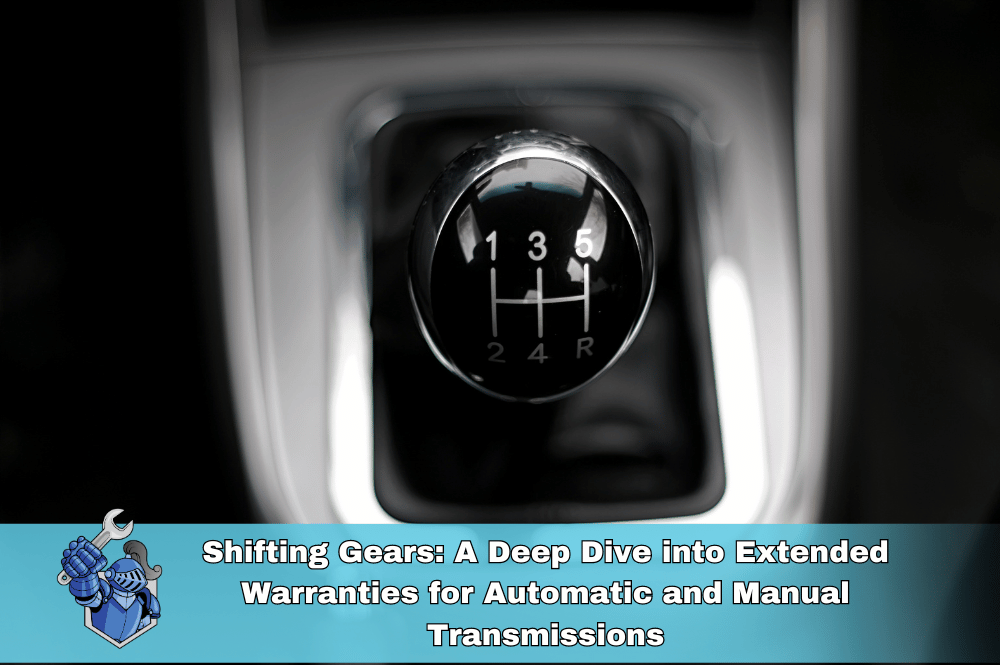 Shifting Gears: A Deep Dive into Extended Warranties for Automatic and Manual Transmissions
Shifting Gears: A Deep Dive into Extended Warranties for Automatic and Manual Transmissions Looking for the Perfect Gift for a Car Enthusiast? Try These 10 Puzzles
Looking for the Perfect Gift for a Car Enthusiast? Try These 10 Puzzles What is an ASE Certified Mechanic? (And Why Should You Care)
What is an ASE Certified Mechanic? (And Why Should You Care) Rules of the Road: Your Ultimate Guide to Safe Driving
Rules of the Road: Your Ultimate Guide to Safe Driving The Ultimate New Driver's Guide: Everything You Need to Know to Hit the Road with Confidence
The Ultimate New Driver's Guide: Everything You Need to Know to Hit the Road with Confidence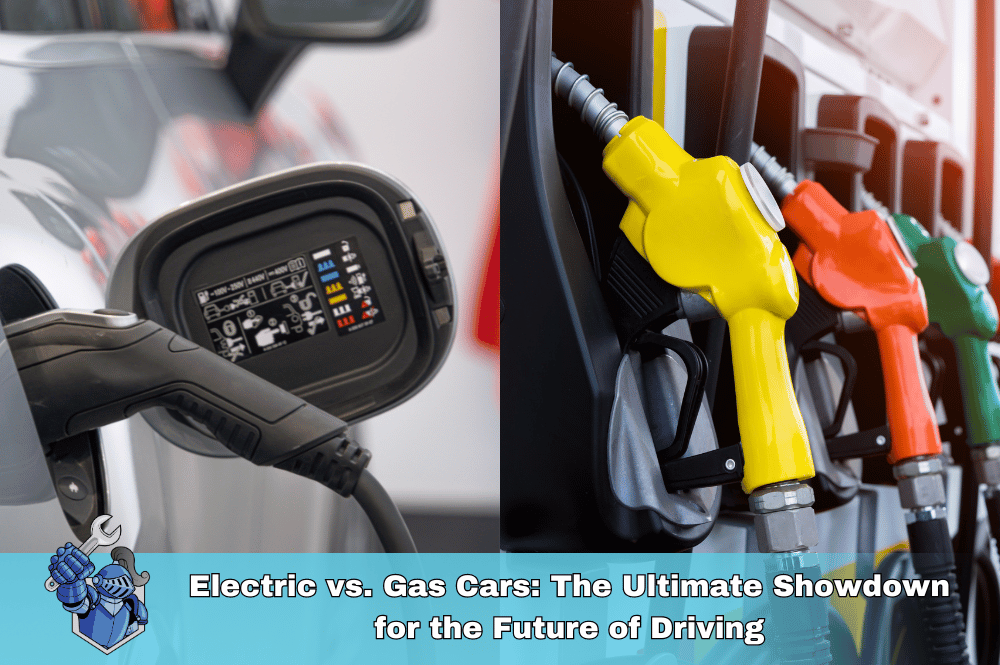 Electric vs. Gas Cars: The Ultimate Showdown for the Future of Driving
Electric vs. Gas Cars: The Ultimate Showdown for the Future of Driving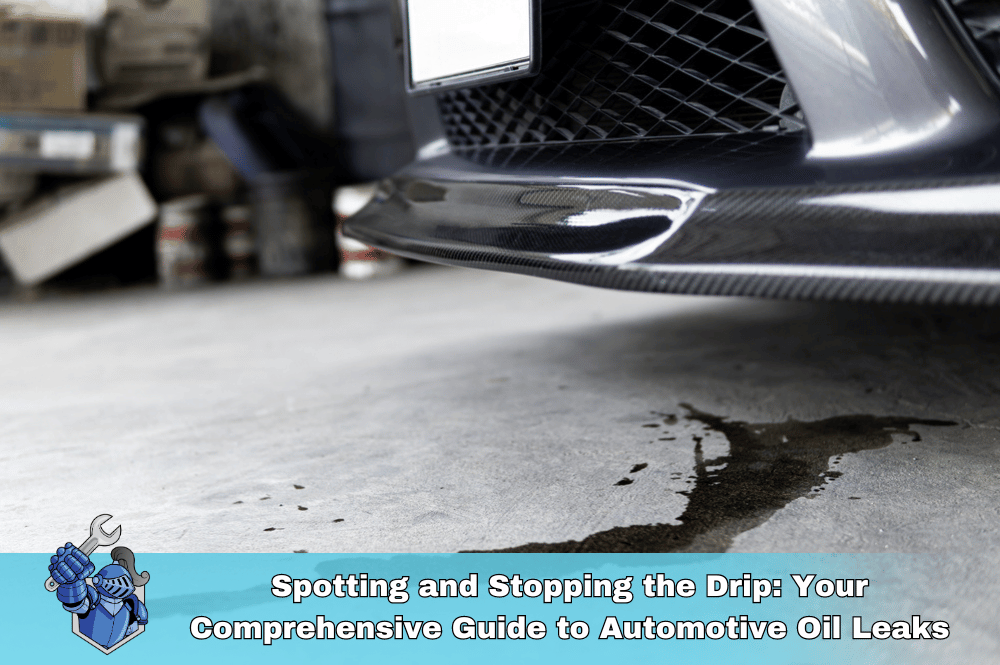 Spotting and Stopping the Drip: Your Comprehensive Guide to Automotive Oil Leaks
Spotting and Stopping the Drip: Your Comprehensive Guide to Automotive Oil Leaks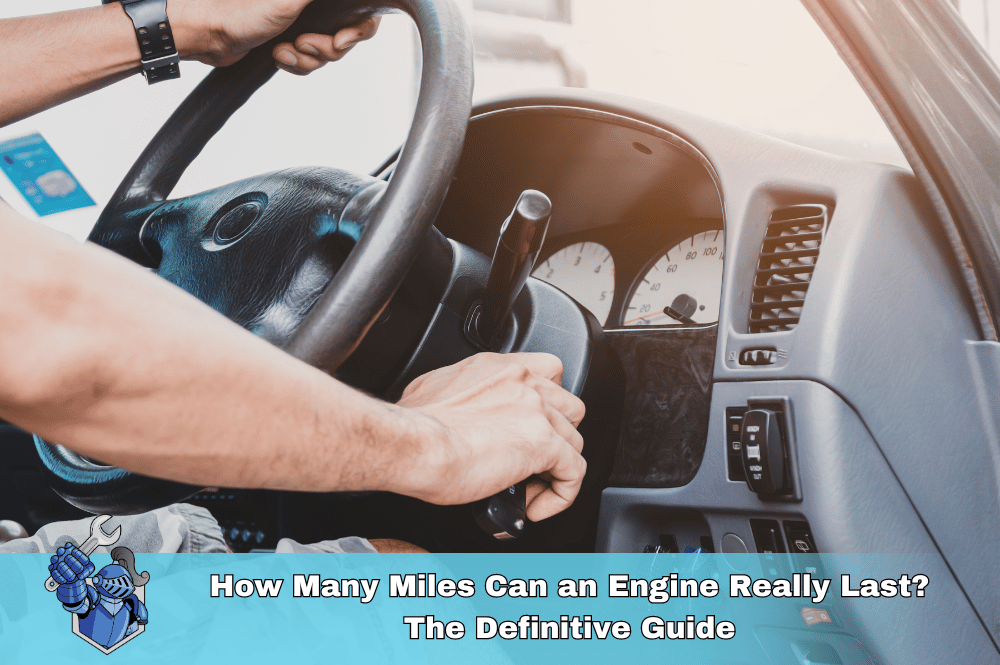 How Many Miles Can an Engine Really Last? The Definitive Guide
How Many Miles Can an Engine Really Last? The Definitive Guide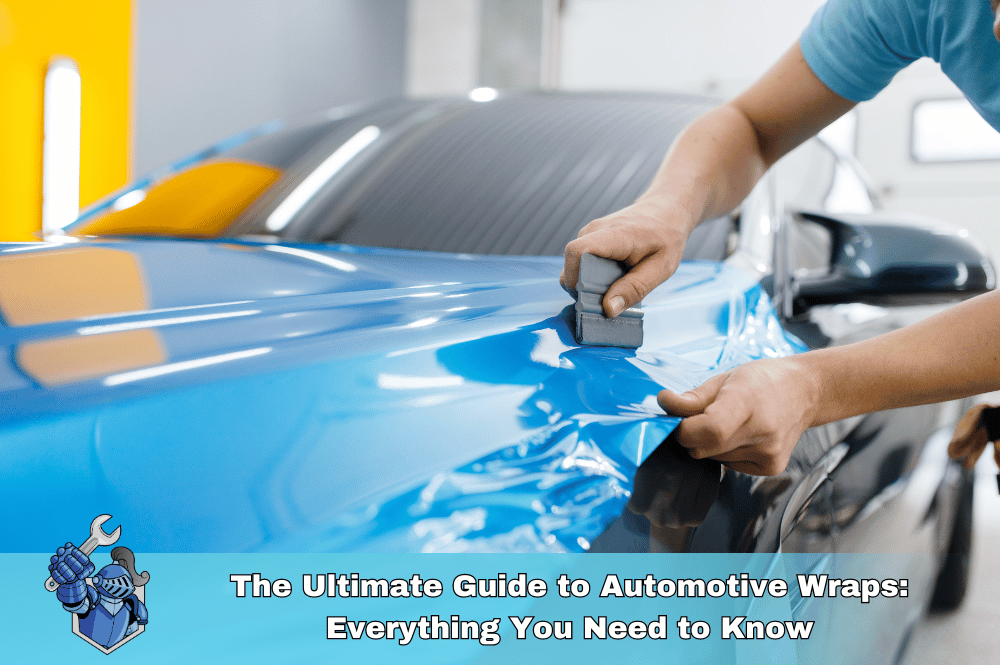 The Ultimate Guide to Automotive Wraps: Everything You Need to Know
The Ultimate Guide to Automotive Wraps: Everything You Need to Know Dealer vs. Local Mechanic: Where Should You Take Your Car for Repairs?
Dealer vs. Local Mechanic: Where Should You Take Your Car for Repairs?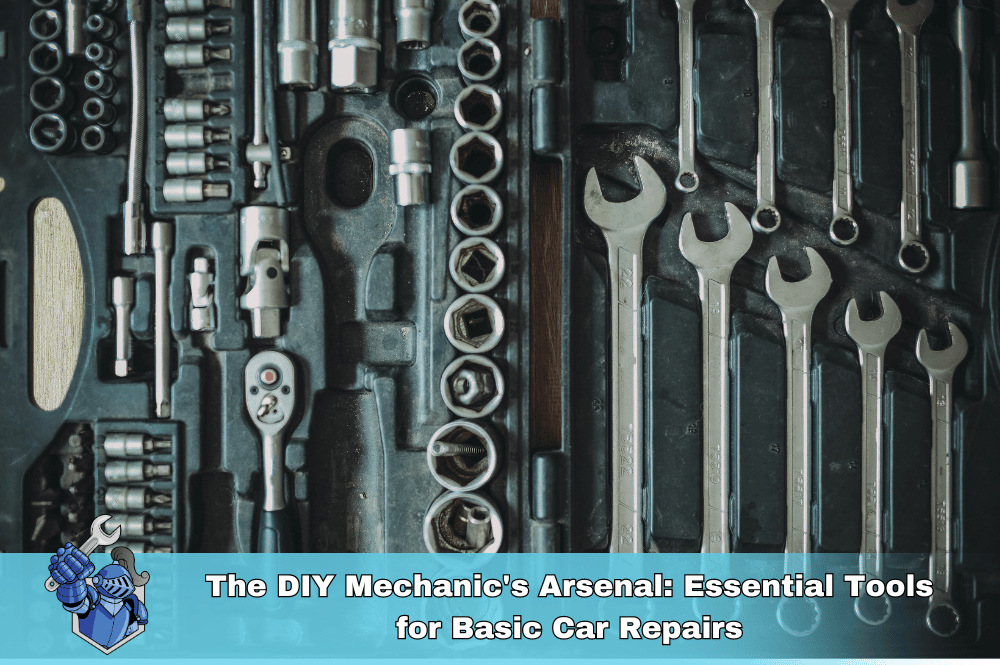 The DIY Mechanic's Arsenal: Essential Tools for Basic Car Repairs
The DIY Mechanic's Arsenal: Essential Tools for Basic Car Repairs Stranded on the Sidelines: Your Essential Guide to Roadside Breakdowns & Staying Safe
Stranded on the Sidelines: Your Essential Guide to Roadside Breakdowns & Staying Safe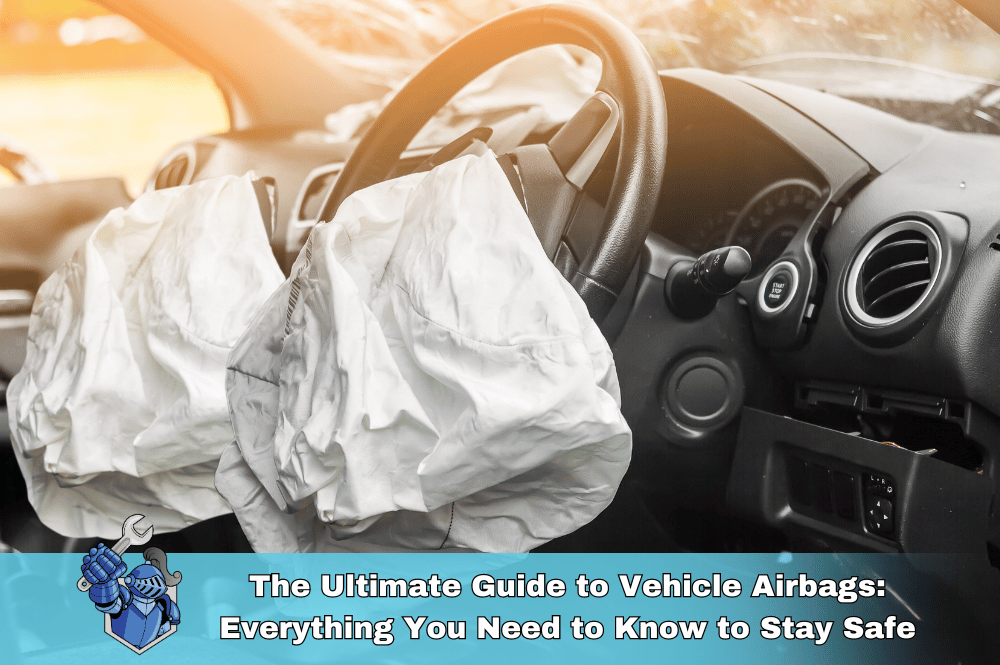 The Ultimate Guide to Vehicle Airbags: Everything You Need to Know to Stay Safe
The Ultimate Guide to Vehicle Airbags: Everything You Need to Know to Stay Safe How to Choose the Best First Car for Your Teen in 2024: A Parent's Guide
How to Choose the Best First Car for Your Teen in 2024: A Parent's Guide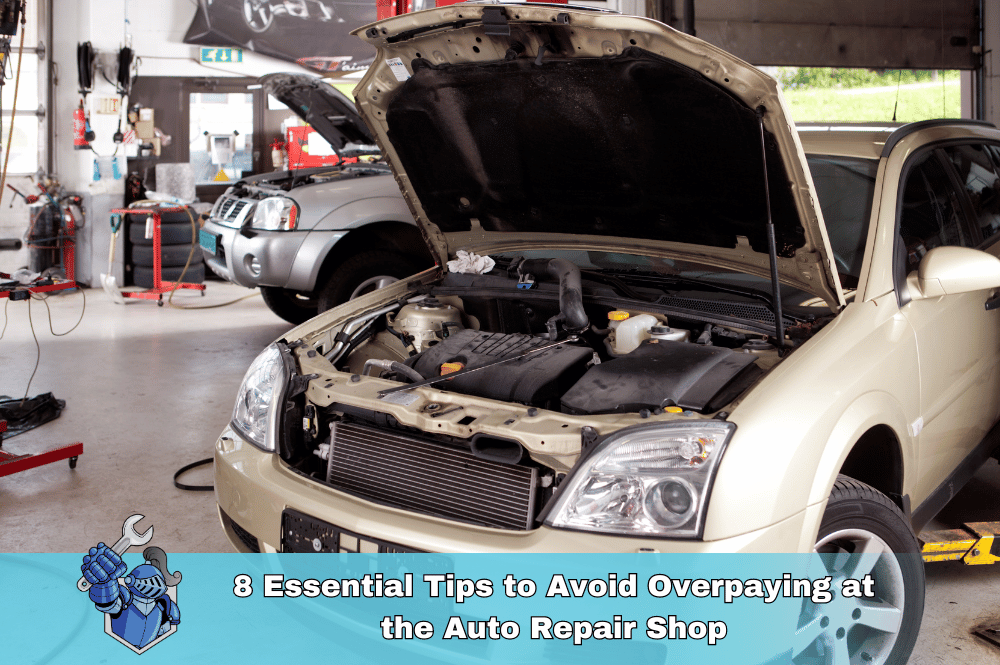 8 Essential Tips to Avoid Overpaying at the Auto Repair Shop
8 Essential Tips to Avoid Overpaying at the Auto Repair Shop How to Replace Your Car Key Battery Tips Costs and More
How to Replace Your Car Key Battery Tips Costs and More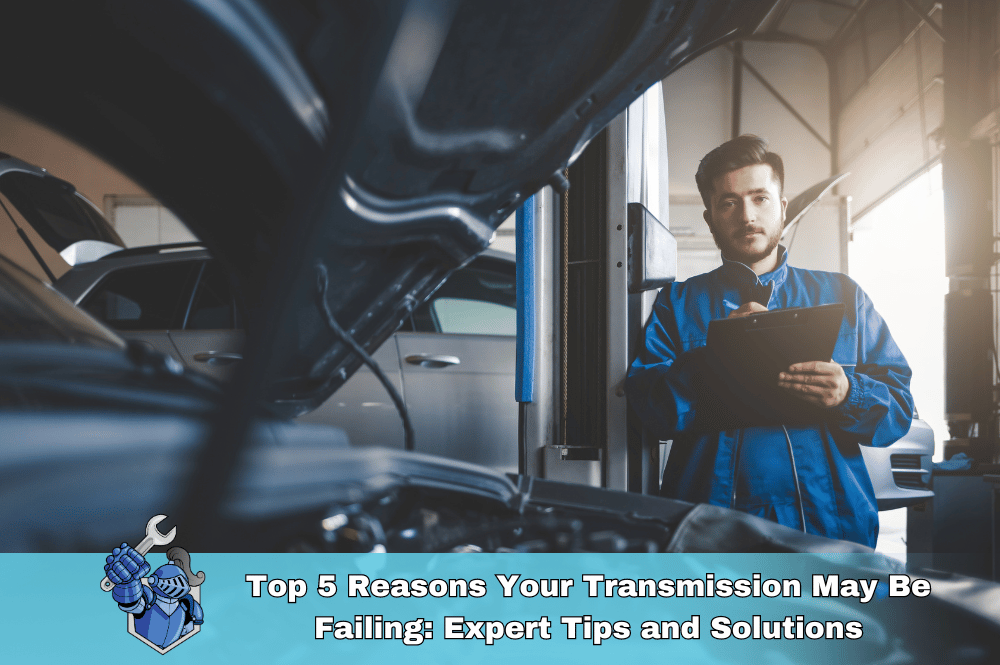 The Essential Guide to Car Maintenance: How to Keep Your Vehicle Running Smoothly
The Essential Guide to Car Maintenance: How to Keep Your Vehicle Running Smoothly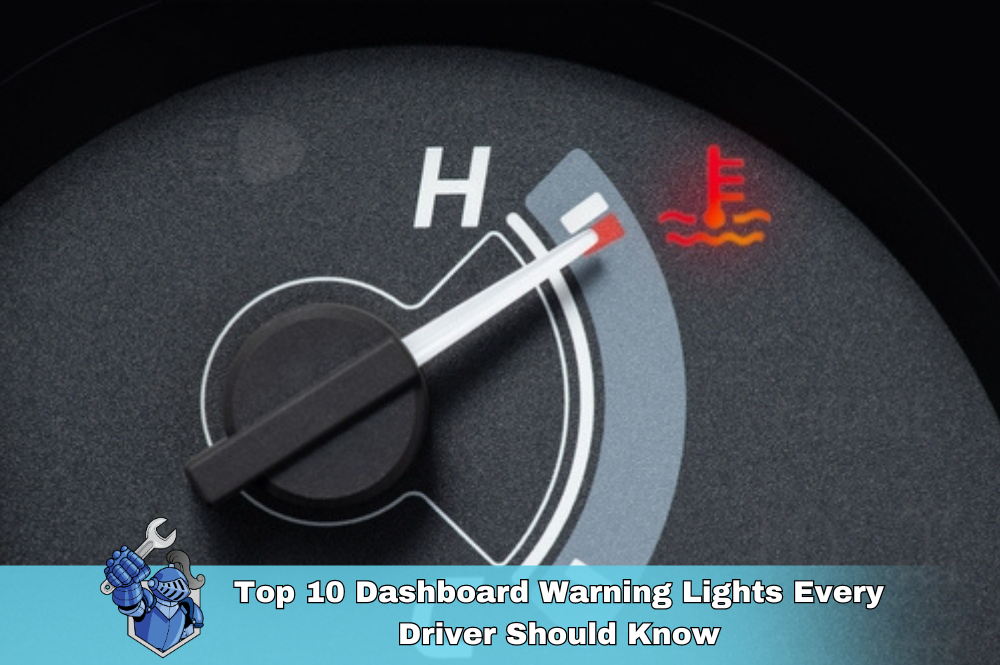 Top 10 Dashboard Warning Lights Every Driver Should Know
Top 10 Dashboard Warning Lights Every Driver Should Know The Ultimate Guide to Motor Oil: Types, Benefits, and How to Change It
The Ultimate Guide to Motor Oil: Types, Benefits, and How to Change It

